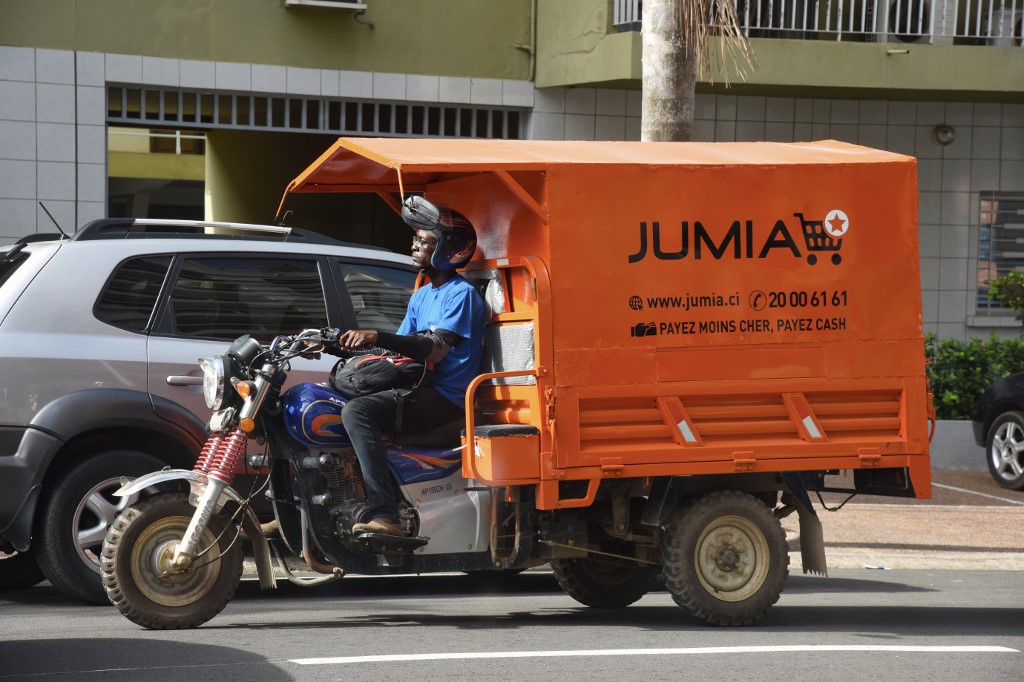(ATF) Currently, there are approximately 465 million Internet users on the African continent, and that figure is expected to reach nearly half a billion by 2025. The statistics website Statista predicts that the revenue of African e-commerce sales will be more than US$18 billion this year. And by 2024, the market size is tipped to reach $34.66 billion, with an average annual growth rate of 17%.
Nigeria, Kenya and South Africa are the three African countries with the fastest development of e-commerce. Some 40% of e-commerce companies in Africa are be headquartered in Nigeria, while Kenya has a relatively developed mobile-payment transaction environment, and South Africa’s cross-border e-commerce is seen as having great potential.
Nigeria: Jumia and JumiaPay
Jumia, an e-commerce platform established in Nigeria, covers more than 10 countries in Africa. The company’s latest financial report shows that it has 6.4 million active consumers, an increase of 51% year-on-year, while the transaction volume of its payment system JumiaPay rose by 77% in the first quarter of 2020 over last year.
JumiaPay’s dealings rose by 278% year-on-year in 2019, and the transaction volume in the fourth quarter of 2019 exceeded that of 2018.
Jeremy Hodala, the co-founder and co-CEO of the payment system, said the e-commerce market in Africa is booming, as the fast-growing number of Internet and mobile users has created huge business opportunities, and consumers are gradually forming online shopping habits.
The “blue ocean” of African e-commerce is being favoured by more and more multinational companies. In April last year, the logistics and express company DHL launched its own e-commerce app and opened it in 11 African countries. As of now, the program has expanded to 34 African countries, the Peoples Daily reported.
South Africa: Takealot
With the advent of the coronavirus pandemic, Takealot, South Africa’s largest e-commerce platform, has achieved record high sales of home appliances.
Among these is Hisense, a home appliance brand from China, has performed well. Hisense’s shipments in May increased by 260% compared to March. Among them, the sales of mobile phone products increased by 485%, and the sales of TV products increased by 180%, accounting for 41% of the Takealot channel.
“The African e-commerce market is growing rapidly, and we should seize the opportunity to bring more valuable Chinese products to African consumers,” said Liu Bin, general manager of Hisense’s Middle East and Africa region, plus South Africa.
“China’s successful experience has inspired and encouraged many young Africans and entrepreneurs.”
The African Union has specifically formulated an “African Digital Transformation Strategy”. The World Bank will invest $25 billion in this strategy by 2030, focusing on the development of e-commerce.
Logistical challenges, lack of trust
As an emerging e-commerce market, the development of internet trade and markets also faces many challenges in Africa. For example, infrastructure in African countries is generally poor, so logistics in many remote areas cannot be covered, and there is a lack of a national street address systems.
The US website “Practical E-Commerce” noted that “because of fraud and shipping difficulties, African people have worries about online shopping.”
Also, a large proportion of the African population has never used banking services, so “the public’s trust in the security of online payment still has room for improvement,” Liu Bin said.
JumiaPay’s Hodala said: “We hope to use the inspiration from Chinese e-commerce to achieve further development. The African e-commerce platform hopes to continue to strengthen cooperation with China.”
Hodala said China’s e-commerce and digital payment system technology was very advanced and its e-commerce ecosystem closer to the actual needs of African countries. “China has mature experience in e-commerce market cultivation and logistics management for Africa to learn from and learn about. Jumia is following the direction of China to better tap the African market.”
Recently, the second Ma Yun (founder of Alibaba.com) African Entrepreneur Competition was held by the Ma Yun Charity Foundation. It received 18,000 application forms from 54 countries and regions in Africa – double the number of applicants from the previous session.
Many entrepreneurs start-ups have emerged in this startup competition. The Ivorian company Afrikrea, which won the “Top Ten Entrepreneurs” in the first competition, sells arts and crafts online. The “Made in Africa” commodities on the platform have achieved sales of more than $4 million in 101 countries and regions.
Afrikrea co-founder and CEO Murray Taber said: “China’s successful experience has inspired and encouraged many young Africans and entrepreneurs.”
























